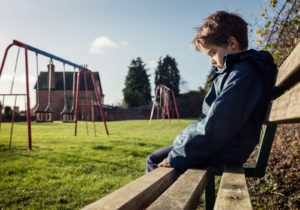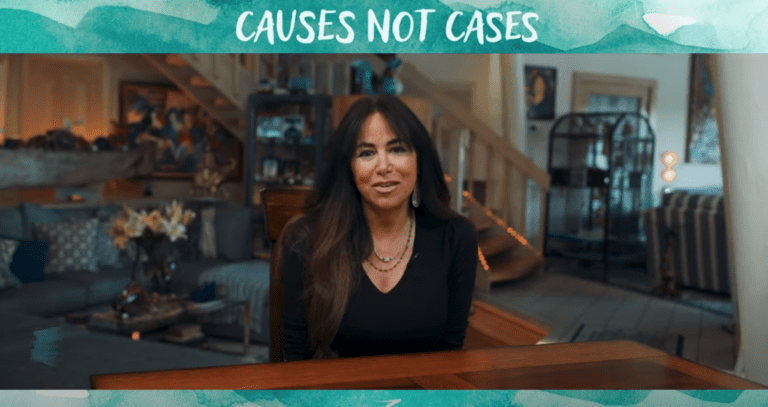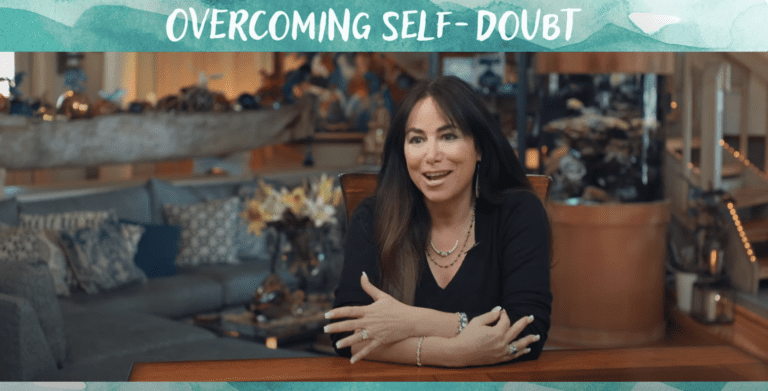8 Common Lasting Effects
Whether you are a parent or a guardian who has learned your child has been sexually abused, or you are an adult survivor, you need to have a clear understanding of the long-term effects of childhood sexual abuse. Children who have experienced sexual abuse are at increased risk for a variety of psychological issues, some of which manifest in physical ways.
If you or your child has been sexually abused, California law entitles you to sue for compensation related to the damages you suffer from childhood sexual abuse. Although you may be reluctant to bring a lawsuit, holding your abuser accountable not only gets you some justice, but you can also help prevent the abuse of future children.
Valuing a claim and pinpointing damages is more challenging in sexual abuse cases than in other types of personal injury cases, such as car accidents or slip and fall accidents. Contact a San Diego childhood sexual abuse attorney as soon as possible to learn about your options. In the meantime, keep reading to learn about the long-term effects of childhood sexual abuse to help you understand the actual physical and emotional damages you can claim when filing suit.
Childhood sexual abuse carries emotional trauma that can harm a person long into adulthood. The American Counseling Association (ACA) reports that children who have experienced sexual abuse are at increased risk for the following:
[lwptoc min=”4″ depth=”2″]
1. Depression and Anxiety
The ACA reports depression is the number one long-term effect associated with survivors of childhood sexual abuse. When children are sexually abused they frequently internalize the event(s), which includes having negative thoughts about themselves throughout childhood and into adulthood. There is a difference between sadness and depression; markers of clinical depression in survivors of childhood sexual abuse include:
- Frequently feeling down
- Thoughts or talk of suicide
- Abnormal sleeping patterns, such as trouble sleeping or sleeping too much
- Abnormal eating patterns, such as inability to eat or overeating
Anxiety is strongly related to depression, like two sides of the same coin. Children who have experienced sexual abuse are at increased risk for chronic anxiety, tension, anxiety or panic attacks, and the onset of different types of phobias, or fears. In fact, according to the ACA, research indicates that child survivors of sexual abuse experience similar stress and anxiety issues as war veterans.
2.Negative Self-Esteem/Self-Worth
When children experience sexual abuse they often blame themselves for the abuse. This is especially common when the sexual predator was loved and trusted by the child, such as family members, clergy, and teachers. The child finds it difficult to see their abuser in a negative light because they held them in such high regard. In turn, the child believes they deserved and allowed the abuse, carrying these emotions with them for years. This incites feelings of guilt and shame on top of self-blame.

Building self-esteem and self-worth remains a crucial task during a child’s developmental years. The guilt and shame of child abuse doesn’t build self-esteem or self-worth. In fact, it causes damage, especially later on in life. Adult survivors of childhood sexual abuse struggle with setting healthy boundaries in their friendships and relationships, making them more prone to be involved with an abusive or controlling partner. They stay in these unhealthy relationships because of low self-esteem and self-worth, stemming from sexual abuse.
3. Suicide
Children who have experienced sexual abuse are at an increased risk for suicide. Thoughts of suicide are often linked with depression, anxiety, and low self-esteem. When child or adult survivors of sexual abuse feel worthless and have low-self esteem, they may become withdrawn, and continued feelings of worthlessness can lead to suicide.
Recent research reveals children who suffered sexual abuse are at least three times more likely to commit suicide later in life than children who haven’t suffered abuse. Children who suffered continual or multiple cases of abuse are at least five times more likely to commit suicide later in life. Child victims of sexual abuse may also commit suicide as the abuse is still occurring. Victims feel powerless because of repeated violations of their bodies through manipulation and coercion.
4. Eating Disorders
Binging, purging, and restricting one’s food can numb or reduce feelings of depression and shame. This sometimes motivates child sexual abuse survivors to self-medicate with food. In other cases, abuse victims engage in these behaviors as a way to punish their bodies—the same bodies that didn’t protect them when they were being abused. This is a form of internal anger. Starving oneself gives a child sexual abuse survivor a way to control their body and substitute for feelings of powerlessness stemming from sexual abuse.
The National Eating Disorders Association (NEDA) claims that 30 percent of people with eating disorders have suffered sexual abuse, likely because childhood sexual abuse has a drastic impact on body image. Although anorexia nervosa is present in those who have suffered sexual abuse, bulimia nervosa occurs much more frequently. Bulimia is an eating disorder characterized by binge eating followed by purging.
According to NEDA, bulimia is connected to the trauma of childhood sexual abuse as a form of self-protection. Binging and purging may temporarily reduce thoughts and emotions related to the trauma of sexual abuse such as anger, guilt, and stress. It also serves as a way for victims to deal with a need for control, predictability, and personal space.
5. Sleeping Disorders
Young children who suffer sexual abuse are likely to have sleep problems, some of which can last into adulthood. Research shows adult survivors of childhood sexual abuse suffer more sleep problems than their counterparts. A recent study explored sleep problems in sexually abused preschoolers and found the little ones experienced far more sleep issues than preschoolers who did not suffer abuse.
Sleep disorders are miserable for adults, regardless of the cause, but they have highly detrimental effects on children. When children don’t get the sleep they need, they might struggle with cognitive functions and under-perform in school. Sleep problems can manifest in many different ways including trouble falling asleep, nightmares, insomnia, and sleeping too long.
6. Substance Abuse
The American College of Obstetricians and Gynecologist’s Council on Underserved Women reports that adults who suffered childhood sexual abuse are four to five times more likely to abuse alcohol or illegal drugs. Alcohol and drug use serve as self-medication that helps abuse victims numb the feelings associated with the trauma they suffered.
In a comprehensive study of more than 1,100 women who suffered childhood abuse, those who experienced sexual abuse were far more likely to self-report one of the following:
- That the woman used alcohol within 30 days of the interview.
- That the woman had been intoxicated within a year before the interview.
- That the woman experienced one or more alcohol-related problems within the previous year including disagreements with family, problems at work, and problems with children.
- That the woman had one or more symptoms of alcohol dependency within the previous year, including blackouts when drinking, consuming alcohol in the morning, and the inability to stop or reduce alcohol over time.
Another study performed by the Medical College of Virginia Commonwealth University found that women who suffered childhood sexual abuse had increased risk for drug abuse. The study also examined the connection between childhood sex abuse and six major disorders including:
- Alcohol dependence
- Drug dependence
- Major depression
- Generalized anxiety disorder
- Panic disorder
- Bulimia nervosa
The study also distinguished between genital sexual abuse, non-genital sexual abuse, and intercourse. Alcohol dependence and drug dependence were the only disorders that were highly associated with all three levels of sexual abuse.
7. Post-Traumatic Stress Disorder (PTSD)
The National Center for PTSD reports that some survivors of child sexual abuse show symptoms of PTSD. They include:
- Agitated behavior
- Nightmares
- Repetitive play that expresses aspects of the abuse
- Phobias
- Loss of developmental skills
- Inappropriate sexual behavior
Older children might act out by being cruel to others, or by internalizing the abuse, withdrawing from others, committing self-harm, or committing suicide. Depression, anxiety, and thoughts of suicide are a common thread that run through many of the long-term effects of childhood sexual abuse, causing them to also strongly correlate with PTSD. The American Counseling Association (ACA) focuses more on a subset of PTSD effects, known as dissociative behavior.
Dissociation serves as a child sexual abuse victim’s most direct defense against a severe trauma. Survivors who suffer from dissociative behavior often engage in derealization and depersonalization, feelings that the world and oneself are not real. When child sexual abuse victims suffer ongoing abuse, they dissociate from themselves and the world around them to avoid connecting with the physical and emotional suffering of the abuse.
Dissociation can also include feelings of disorientation or confusion, flashbacks to the abuse, nightmares, and lack of emotion. Dissociation is also what causes some child victims and adult survivors to deny and repress the abuse. This also explains why some abuse survivors don’t recall their abuse until much later in life.
8. Difficulties With Sex
As might be expected, the physical long-term effects of childhood sexual abuse are primarily related to sex and sexuality. Yet, the emotional and physical are intertwined. According to the ACA, the top 10 sex-related issues children who have suffered sexual abuse are at risk for in adulthood include:
- Survivors might not feel interested in sex, develop a phobia of sex, or avoid it altogether.
- Survivors might view sex as an obligation because of how their abuser coerced or manipulated them during the abuse.
- Survivors might not engage in sexual relations because they feel anger or guilt when a partner touches them sexually.
- Survivors might not feel aroused or any sensations during sex.
- Survivors might not connect emotionally with their partner during sexual relations.
- Survivors might feel plagued with disturbing images and thoughts when engaging in sex.
- Survivors might participate in compulsive or hyperactive sexual behavior, meaning they need to have sex and have it with an excessive amount of partners
- Survivors of child sexual abuse often have difficulty initiating or maintaining intimate relationships with others.
- Female survivors might experience vaginal pain and have difficulty reaching orgasm. Similarly, men might suffer from erectile dysfunction or have difficulty climaxing.

Children who have experienced sexual abuse are at increased risk for several types of psychological disorders and physical difficulties listed above, and this doesn’t even include the risk of pregnancy, sexually transmitted diseases (STDs), and HIV or AIDS. Female survivors may never be able to have children as a consequence of contracting an STD, and all survivors who contract HIV/AIDS may need to take medicine to treat symptoms indefinitely.
The mental trauma that accompanies child sex abuse causes even more struggles for survivors. The trauma can permeate a survivor’s personal and professional life. In severe cases, a survivor might not be able to work because of anxiety and symptoms of PTSD.
If you suspect or know a child is being sexually abused or has been sexually abused, your first task is to STOP THE ABUSE. You can report sexual abuse by calling the California Department of Social Services 24 hours per day. Each county has a hotline staffed by social workers. You can find the number for your county office here. Social services will start an investigation, and remove the child from the home if necessary.
If your child was sexually abused or you are an adult survivor of sexual abuse, you need to contact a personal injury attorney with child sex abuse claim experience for a private and free consultation to discuss: the circumstances of the abuse, what is child sexual abuse, or any other sexual abuse questions. The attorney can determine the viability of your case for a civil claim and advise you on your best course of action.







